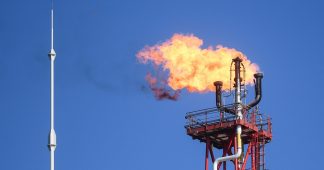For more than a century, the oil and gas industry has played a central role in almost every geopolitical development of consequence. Now that the fossil fuels’ days finally seem to be numbered, it is time to consider not just what will come next, but also what it will take to get there.
Giuliano Garavini,The Rise and Fall of OPEC in the Twentieth Century, Oxford University Press, 2019.
Bradley Hope and Justin Scheck, Blood and Oil: Mohammed bin Salman’s Ruthless Quest for Global Power, Hachette Books, 2020.
Daniel Yergin, The New Map: Energy, Climate, and the Clash of Nations, Penguin Press, 2020.
Since then, there has been perennial speculation about an imminent shortage. In the 1950s, the American geologist Marion King Hubbert built a sophisticated mathematical model to estimate the size of oil fields and natural-gas reserves, popularizing the idea of “peak oil”: the moment after which production would begin a structural decline. In his view, the rate of oil extraction would resemble a bell curve, with a steep rise to a peak in the 1970s, followed by terminal weakening.Needless to say, such fears have not been borne out. Hubbert and countless others issuing these wrong-headed predictions underestimated both the true scale of the planet’s oil reserves as well as humanity’s ability to overcome the physical limits to further extraction. New fields are discovered regularly, and existing wells have not been exhausted as quickly as the pessimists thought. Instead of peaking, it turns out that an oil well’s productivity actually tends to plateau. And Hubbert, forecasting during a period of technological stagnation in the industry, could not have anticipated that hydraulic fracking and horizontal drilling would usher in the shale-energy revolution 60 years later, reshaping the entire industry.
Continue reading at www.project-syndicate.org












MILAN – Pessimism has pervaded the oil industry ever since its inception in 1859, when the small town of Titusville, Pennsylvania, became the site of the first oil rush. To many observers at the time, the “black gold” was a gift from Mother Nature that would surely be exhausted once discovered by others. In 1885, Pennsylvania’s official state geologist warned that, “The amazing exhibition of oil” would be merely a “temporary and vanishing phenomenon – one which young men will live to see come to its natural end.”